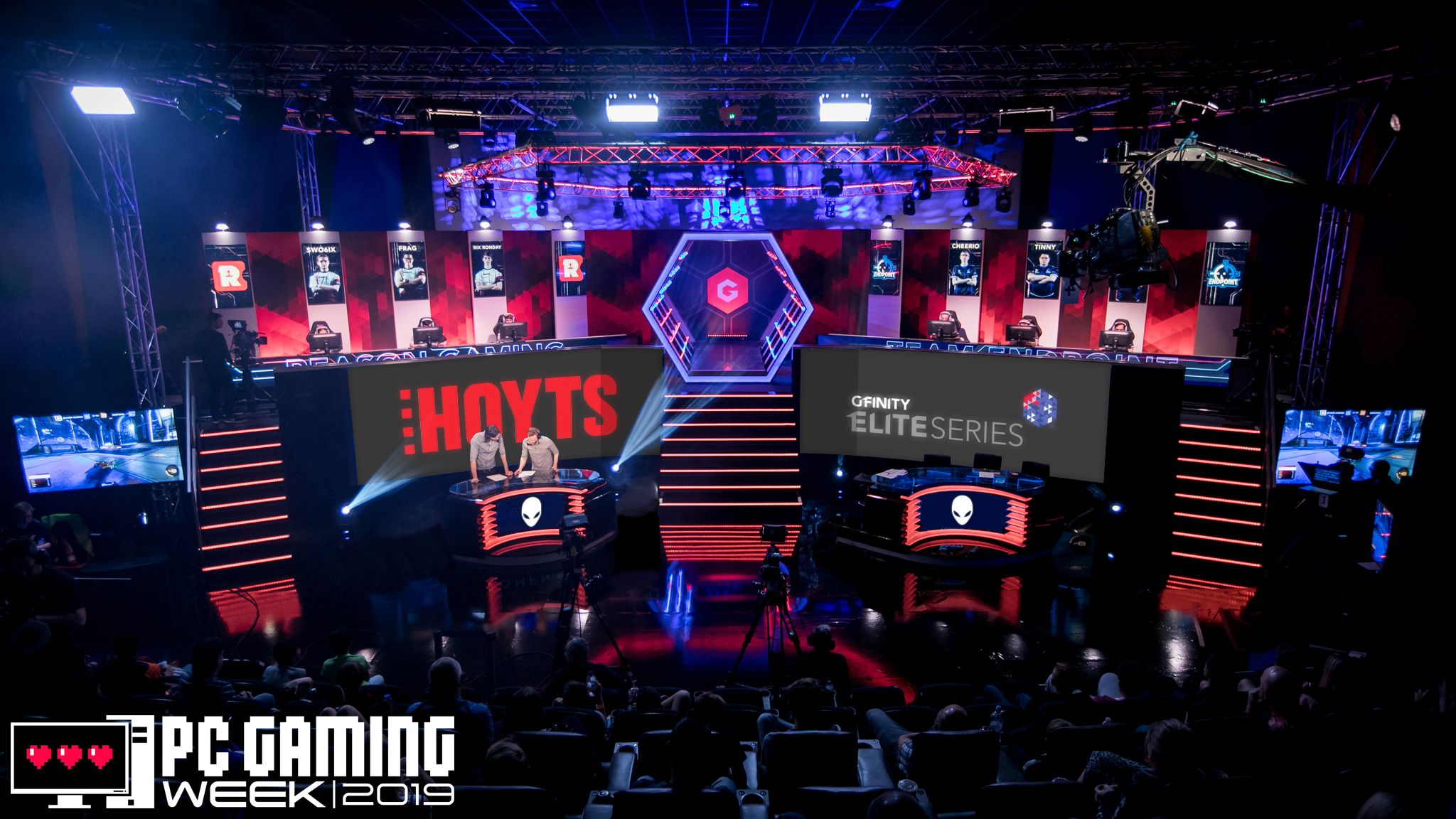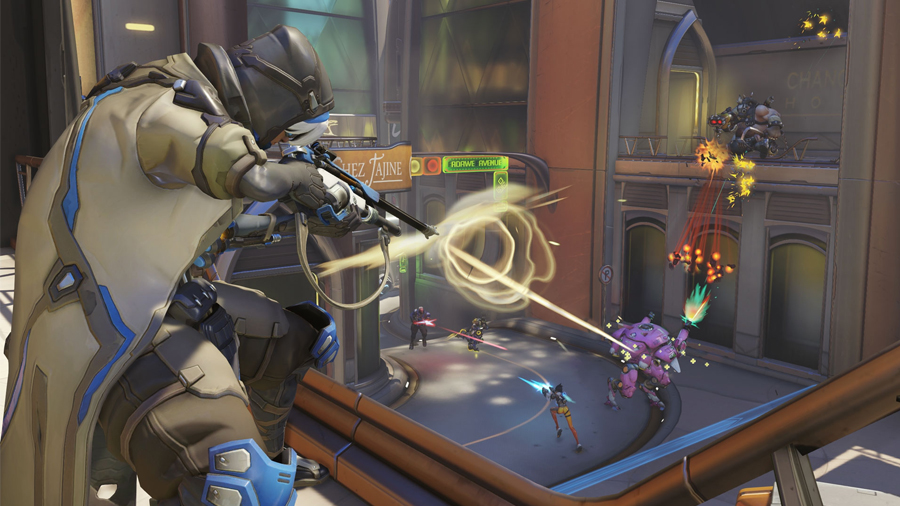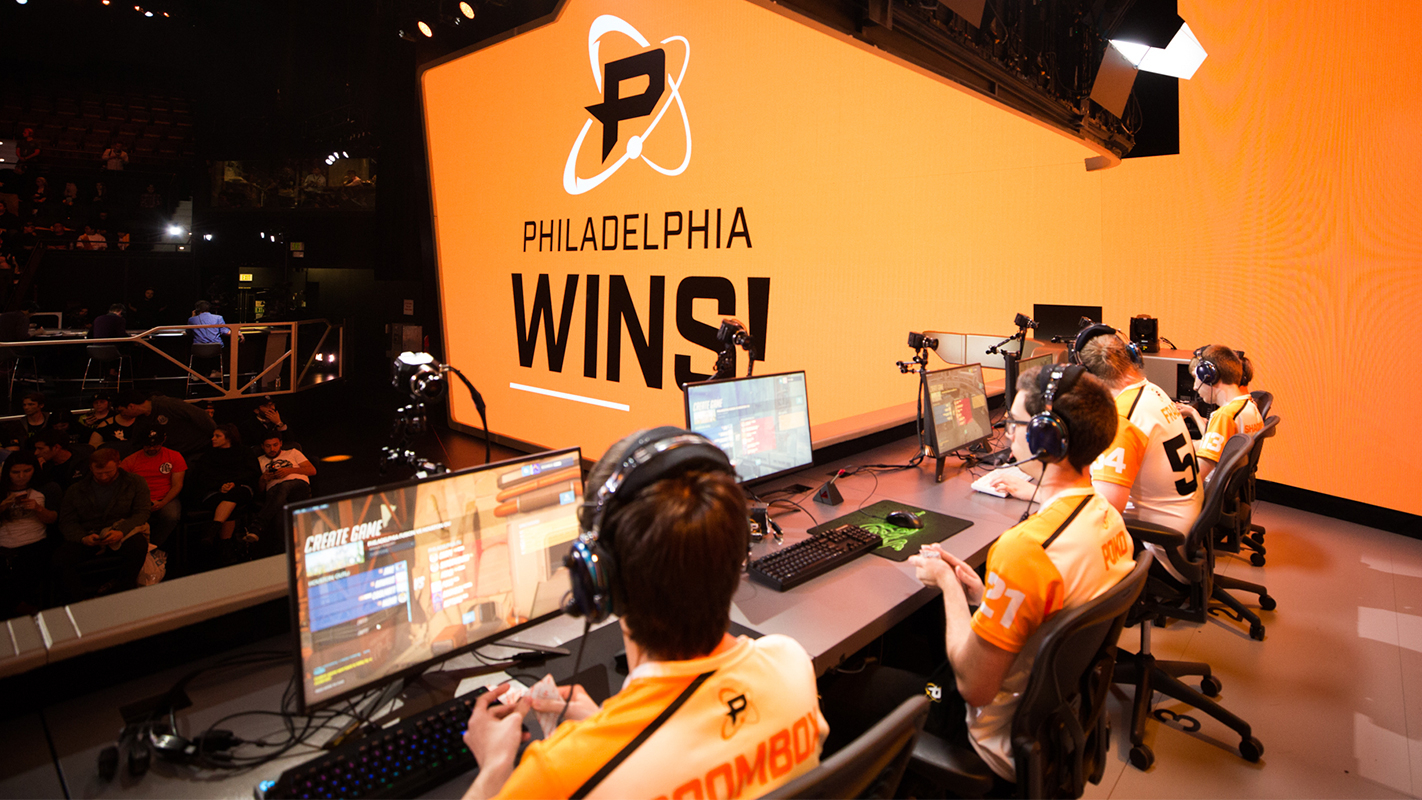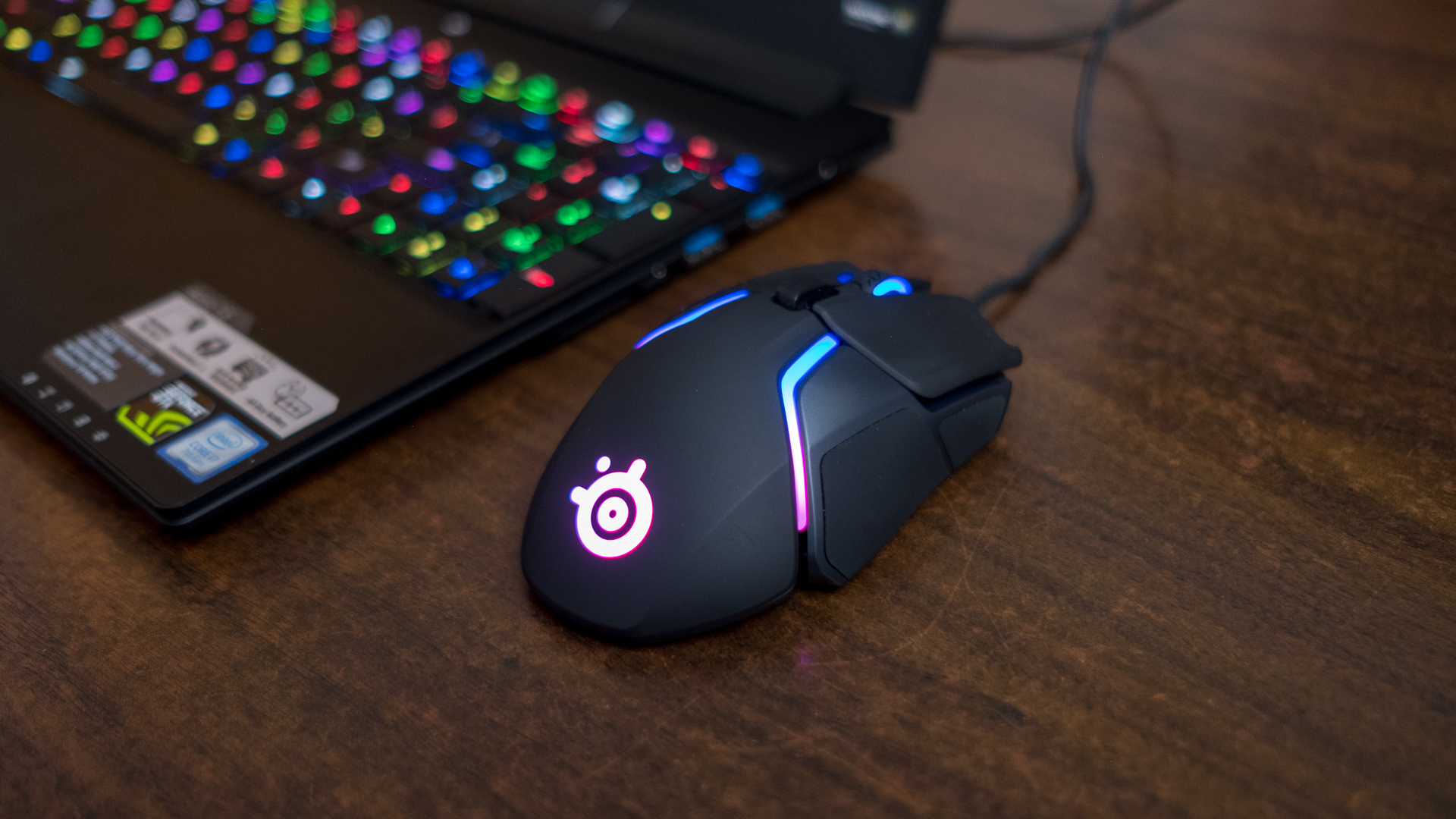What it takes to become a professional esports player

It’s probably every PC gamer’s dream: playing games and getting money for it. But how can you go about becoming a professional gamer?
We spoke to Eli Gallagher, a professional Overwatch gamer who plays with the Evil Geniuses esports team about what you need to make it in professional gaming, from the hardware to the training.
“I’m the in-game leader and shot-caller for them,” he explains. “It’s mostly healing, making sure everybody is stocked up. For my particular role it’s mostly also movement, so I make sure that everybody is in the right spot and then keeping them all up mid-fight and stuff like that.”
In his support role, Gallagher mainly plays as Lucio. “He’s one of the support heroes who’s really focused on like positional healing. So, I have an aura around me and my team needs to be in that aura to actually get the buffs that I provide. That means it’s a lot about where my team is and where I can position myself.”

Playing full time
Of course, even those times playing Overwatch in his spare time are useful.
“It’s really important to stay up on your mechanics and make sure you can still play at that high level.”
Gallagher has been playing Overwatch, an extremely popular online game, since its launch, and currently plays around 10 hours a day.
Sign up for breaking news, reviews, opinion, top tech deals, and more.
“And that’s really more of a recent development,” he explains. “When the game came out it was closer to like three to four hours a day, because I didn’t really know anybody in the professional scene, so I was playing with the friends I have from school. But, now that I’m on a pro team, I try to put in as many hours as I can.”
“When I have an off day, usually at least half of that day is still spent playing Overwatch. I just really enjoy playing the game.”
Eli Gallagher
If you’re playing any game for that long, and for that many hours a day, you must end up growing a bit bored of it. However, Gallagher hasn’t found his enthusiasm for Overwatch waning.
“I don’t know if everybody would be able to play the game for that many hours but I still find new things in it, and really enjoy playing. Especially the strategic aspect of it.”
Gallagher even plays Overwatch when he’s not training or taking part in events. “When I have an off day, usually at least half of that day is still spent playing Overwatch. I just really enjoy playing the game.”

Going pro
So, how did Gallagher get into playing Overwatch professionally? “It wasn’t really something I’d set out to do originally. In my school everyone was really excited about esports, and League of Legends was really cool, so I really just enjoyed the concept of it. And I thought ‘well, I like strategy games, this might be something that I’m interested in!' I then started playing casually and ended up getting scouted. I was thought of as a really good player and ended up getting picked up.”
Players getting found by talent scouts is a familiar tale in traditional sports, so you may be surprised to know that it happens with esports as well. If you’re playing well, you may get noticed.
“I had posted in a Discord channel, which is a chat service which a lot of gamers use, that I was looking for a team. I got approached by a coach, and then going from amateur team to amateur team to amateur team I finally landed on the team Eastwind. And then we had a good tournament performance and we ended with Evil Geniuses, which was really awesome".
Evil Geniuses is an esports organisation based in San Francisco and founded in 1999 as a Counter-Strike team. It has a number of teams specialising in a range of games, including Defense of Ancients (Dota), League of Legends, StarCraft II, Halo and, of course, Overwatch. In 2015, the Dota team won the largest prize payout in esports history.
"Usually, the way I practice is I try to get ten hours of serious game-play in a day."
As for Gallagher, getting found by a couch helped him hone his skills.
“I like to think I had the basics of the game down, but I’m sure there were many things that he taught me that I may not have figured out on my own. It’s really helpful to have multiple perspectives when you think about the game, because sometimes you can miss something that’s really important. He definitely really helped my development in the game.”
So, what does training for a game like Overwatch entail?
“Usually, the way I practice is I try to get ten hours of serious game-play in a day, where I’m taking the game 100% seriously. That means I’m playing to win, I’m playing to do the best I can in each of those games. That wasn’t always easy when I started, because I had high school. Balancing playing Overwatch and sleeping and going to school was a really tight fit.”
Tips for beginners
So, what tips does Gallagher have for people who want to get started in playing esports professionally?
“I think that if you’re looking to get into competitive esports, you really just want to play whatever game interests you.”
It’s certainly wise advice, as if you’re going to be pouring so many hours into playing a game, it should be one you enjoy.
“It’s really hard to put that much time to become a professional into a game that you just don’t enjoy playing, so that’s the baseline for trying to get into it. You want to make sure that you’re having fun when you’re playing the game, and that it’s something you enjoy doing.”
"You want to make sure that your passion in the game isn’t fuelled by like a want for money, you want to do it because you like playing the game."
A passion for what you are doing should always be a priority if you’re thinking of becoming a professional gamer.
“It’s something that I had to think about a lot when I considered going pro with Overwatch. If it’s going to be your job, and it’s going to be what you’re doing every day, and you want to try to be the best and improve, you really want it to be something where your drive is coming from the fact that you want to play. You want to make sure that your passion in the game isn’t fueled by like a want for money, you want to do it because you like playing the game.”
And, as Gallagher points out, it’s better to stick to one game and concentrate on that.
“I think that there are some skills that can spread across all games, but it’s really mastery of a specific game that helps. When you know all the ins and outs of the characters you like playing, and you know how much damage your counters do, when you can take fights to the enemy team and stuff like that. It’s really important to have knowledge of the game you want to play.”

Getting the right kit
So, what kind of kit does Gallagher use when playing professionally?
“When I was 13 my parents bought me a laptop for my birthday, and I of course only had a trackpad because I didn't have a mouse. So, I actually bought a Steelseries Sensei to use with that. I used that for around four years. Then, just recently when I joined EG and went to their gaming house they sent me home with a Steelseries M800 keyboard. I was using a laptop keyboard for like all that time, but now I could never go back to that keyboard, that’s just how much I like the M800."
Steelseries is one of the sponsors of Evil Geniuses, which makes it a bit easier for Gallagher to get hold of its kit. However, Steelseries has a number of entries in our best gaming mouse and best gaming keyboard lists, so it must be doing something right.
As for the laptop his parents bought him, while the portability of the device was welcome, it didn’t necessarily make things easier when playing competitively.
“Most tournaments will supply a computer for you, and the laptop wasn’t really capable of high frame rates, so it was a bit choppy to play on, sometimes. Most of the people I played with were like ‘really, you play on a laptop?’ But, I dunno, I made do. I didn’t think it was that big of a disadvantage, personally.”
High frame rates and refresh rates are essential to competitive play, and while many new gaming laptops come with screens capable of 144Mhz refresh rates, not all do.
“The refresh rate on that thing was just 60Hz,” Gallagher explains, “like, I guess, a standard monitor. But it was interesting to upgrade to a PC, especially when I went to the EG house [where they train]. The desktops I played on there were just so incredibly superior to the laptop I was using, I was like, ‘maybe I should look into getting one’”.
Upcoming games
So, are there any other games Gallagher is looking forward to playing?
“As weird as it sounds, I’m always excited to play more Overwatch.”
But, surely there must be other games that have caught his eye.
“I get excited whenever there’s an update. But, games other than Overwatch that I’m excited to play? Erm, Player Unknown Battlegrounds is a fun game to just play with teammates. I can have a more relaxing experience with them, because most of the time when you’re working with teammates, it can get intense and stressful when you’re playing with them so many hours every day. So, it’s just nice to sometimes wind down with some more relaxing games."
Welcome to TechRadar's PC Gaming Week 2019. We're celebrating the most powerful gaming platform on Earth with in-depth articles, exclusive interviews and essential buying guides that showcase everything PC gaming has to offer. Visit our PC Gaming Week 2019 page to see all our coverage in one place.
First published June 2019

Matt is TechRadar's Managing Editor for Core Tech, looking after computing and mobile technology. Having written for a number of publications such as PC Plus, PC Format, T3 and Linux Format, there's no aspect of technology that Matt isn't passionate about, especially computing and PC gaming. He’s personally reviewed and used most of the laptops in our best laptops guide - and since joining TechRadar in 2014, he's reviewed over 250 laptops and computing accessories personally.